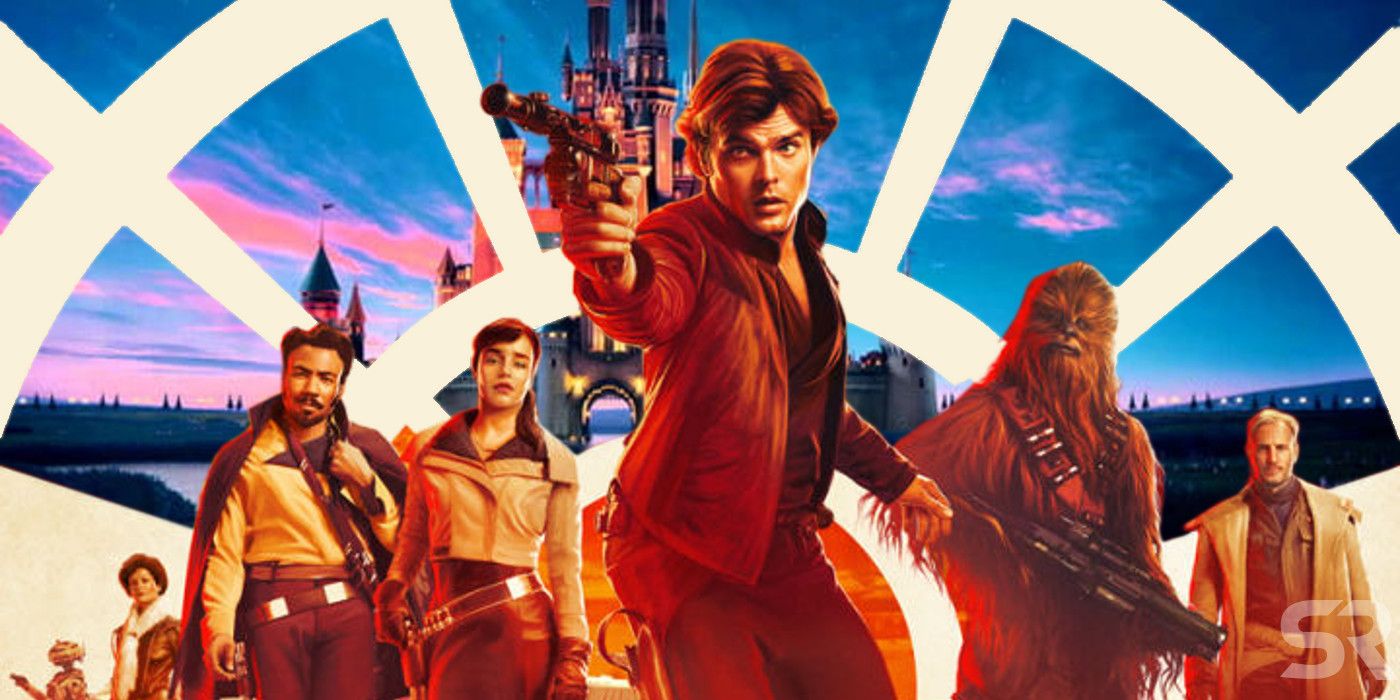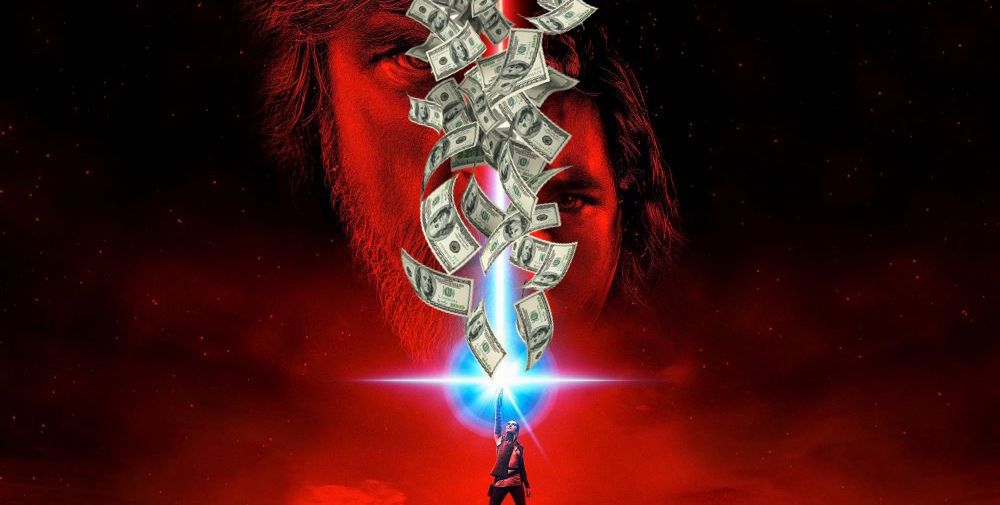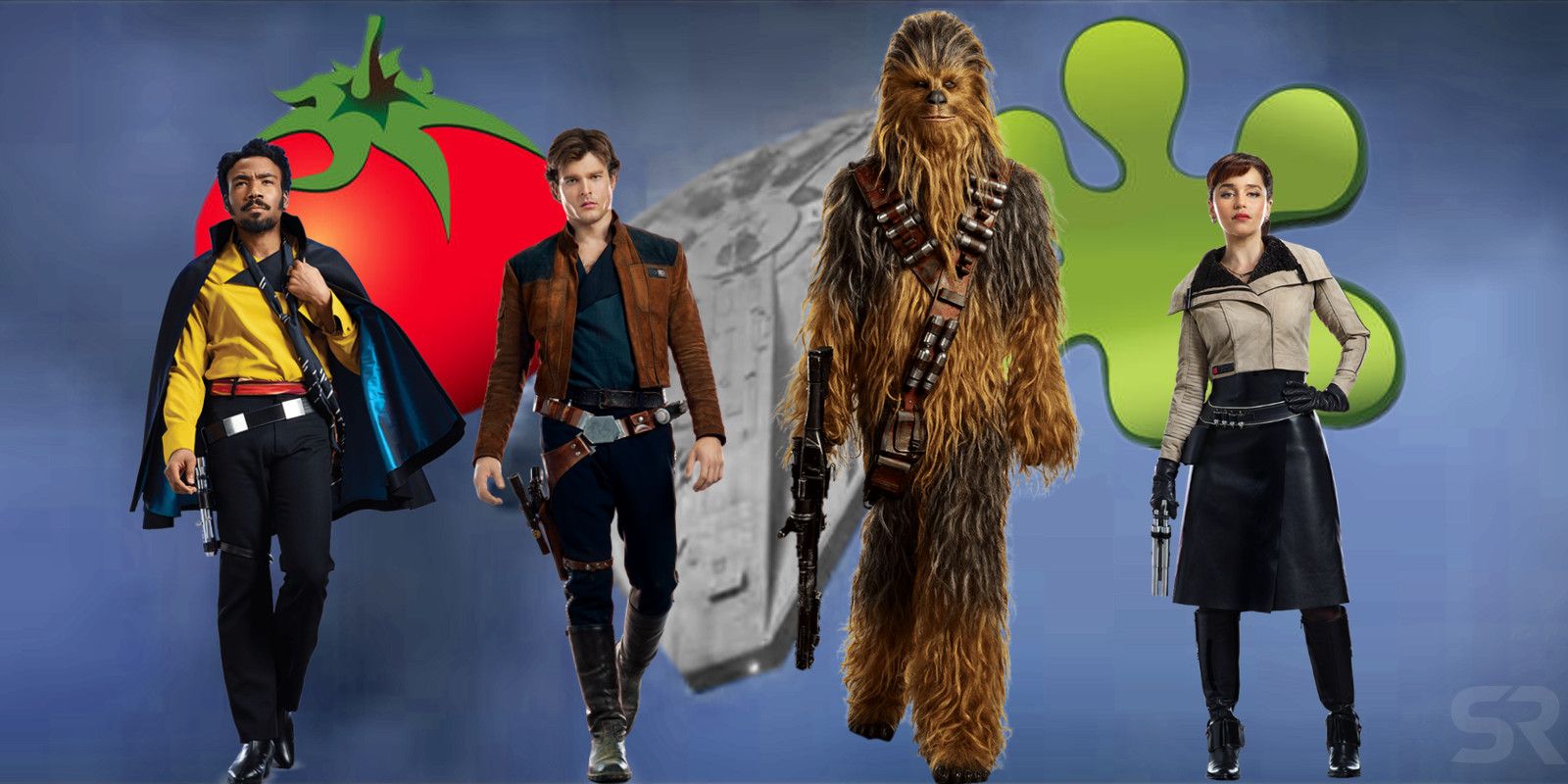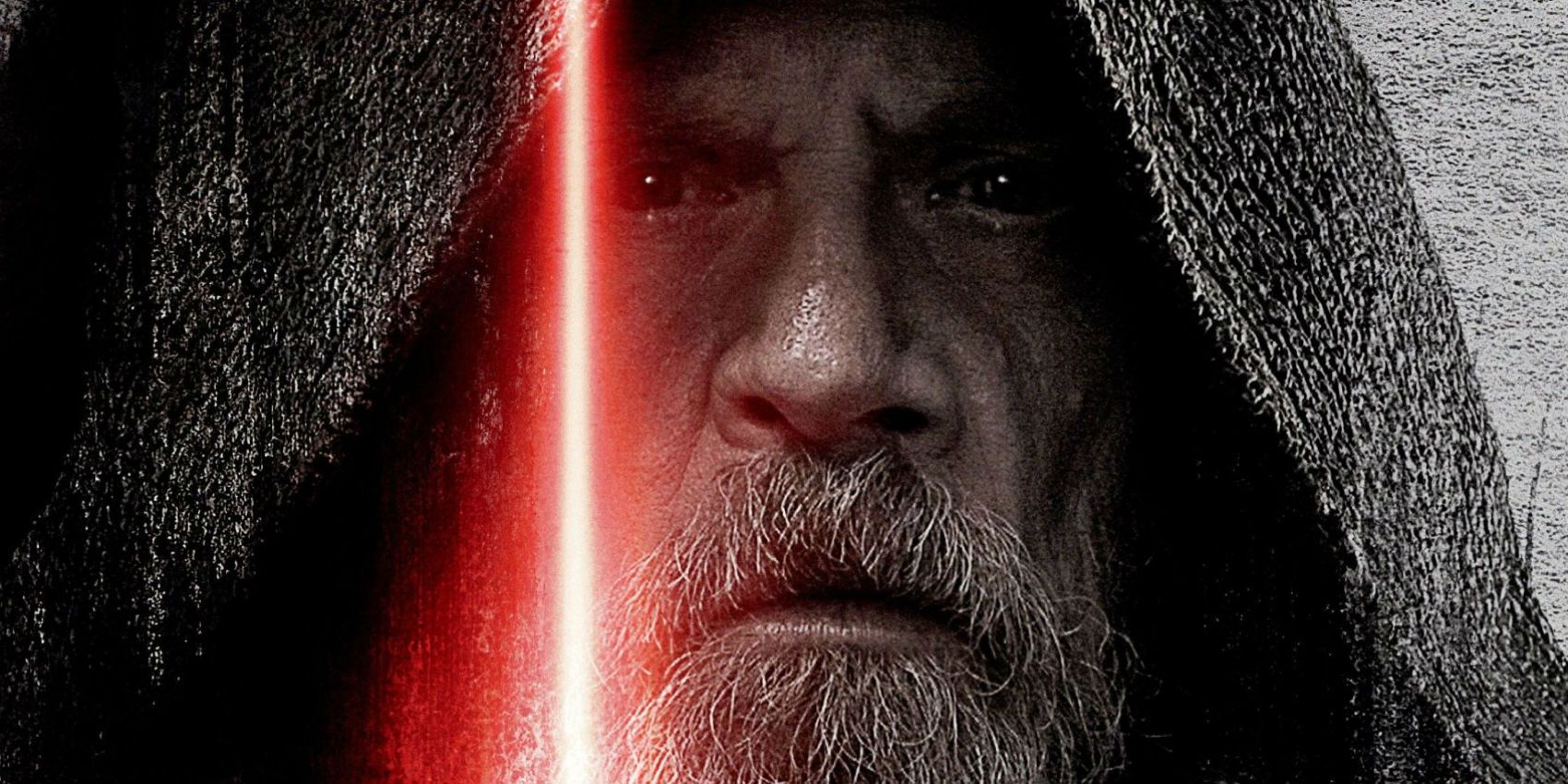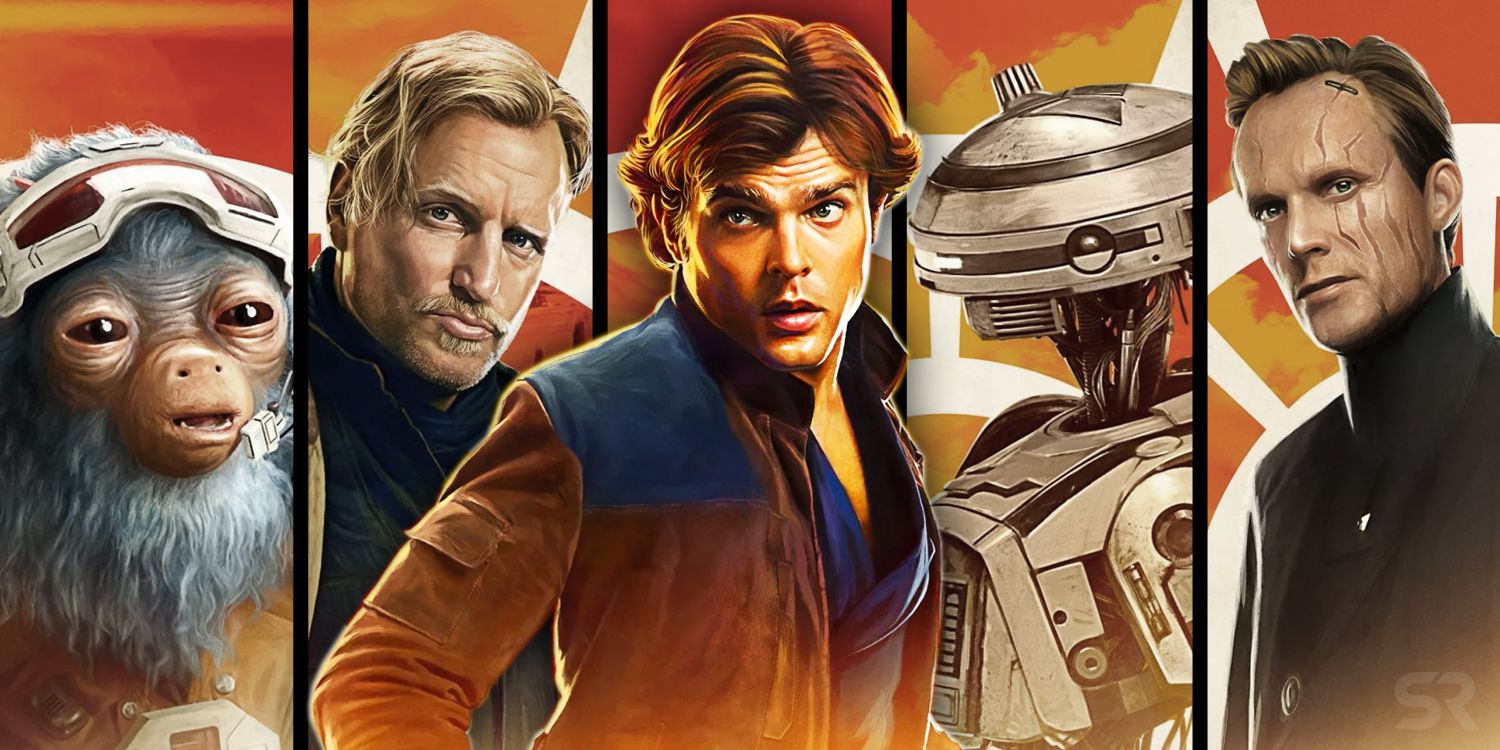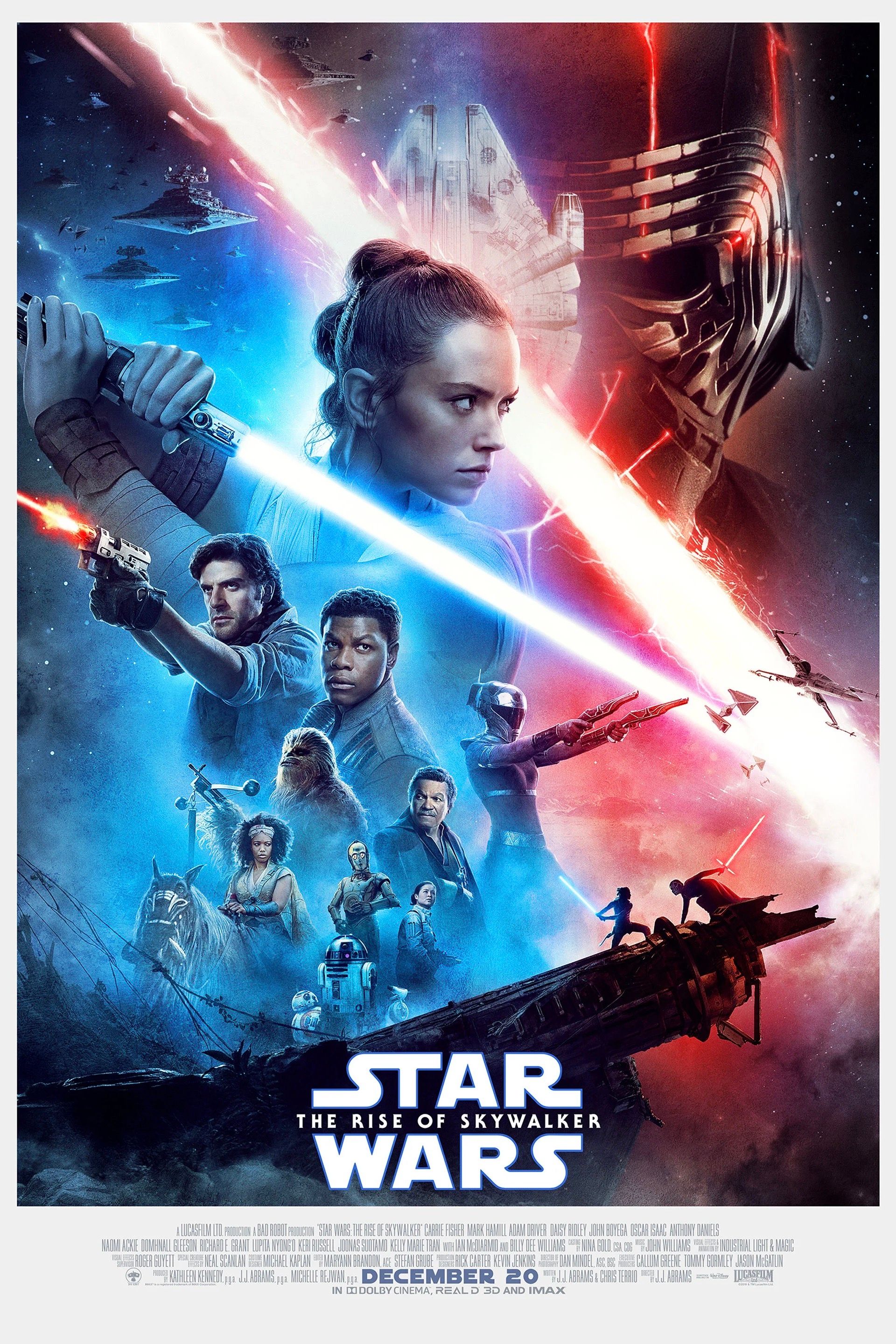Solo: A Star Wars Story was met by lukewarm reviews, got off to a shockingly weak start at the box office, and followed it up with a disastrous second-week drop, but there's no reason to be concerned for the Star Wars brand management under Disney just yet.
Solo is unquestionably a disappointment, but following three massively successful Star Wars installments before it, it's hardly a bad sign for the franchise as a whole. While it's easy to compare Disney's massively successful Marvel Cinematic Universe, which doesn't have a box office bomb in recent memory, it's not common for fans or audiences to evaluate the impact of a box office disaster in an otherwise strong franchise, so it's understandable why some would jump to conclusions.
Related: Solo Is A Box Office Failure Because Lucasfilm Forgot To Try
Nevertheless, many are pointing to Solo's failure as a sign of franchise fatigue, failed creative decisions, fan boycotts, and a host of other issues, going so far as to say it's a crack in the foundation that will bring everything down. Or at least get the other spin-off movies canceled or massively delayed. While there will certainly be some adjustments made, Disney's management of Lucasfilm and the Star Wars brand so far has been (mostly) stellar, and there's no reason to be concerned.
- This Page: Star Wars is Still a Box Office Juggernaut
- Page 2: Critics and Audiences Love Star Wars, and Don't Worry About That Fan Divide
- Page 3: What Does Solo's Failure Mean For the Future?
Star Wars is Still a Box Office Juggernaut
When it comes to box office, Star Wars is just as strong as ever. Having three movies in a row break $1bn (with The Force Awakens exceeding $2bn) is an impressive feat. Marvel has six movies (The Avengers, Iron Man 3, Avengers: Age of Ultron, Captain America: Civil War, Black Panther, and Avengers: Infinity War) past that $1bn mark, with Infinity War well on its way to $2 billion, but it took them 10 years to do it, with the first movies to cross the mark back to back (a feat Disney accomplished with its first three Star Wars releases) happening with the two most recent MCU installments, Black Panther and Infinity War. Considering both franchises are owned by Disney, that's a lot of money to the mouse house either way.
There was some negative buzz surrounding The Last Jedi's box office for failing to surpass The Force Awakens, but that view is ignorant of the context The Force Awakens released in. It was a cinematic return of the Star Wars franchise, and the hype of the lead-up to its release could never be replicated. Besides, The Last Jedi was still 2017's highest grossing movie and one of the top grossing titles in film history.
This isn't even new to Star Wars. A New Hope (or, just Star Wars at the time) is the highest grossing of the original 3 movies, even though most people regard Empire as the best in the franchise. This isn't to say box office doesn't matter at all, but when both episodic films released under Disney easily break $1bn and the first spin-off movie, which doesn't feature any classic characters other than some cameos or other minor roles, also breaks $1bn, something is being done right. Which brings us to Solo: A Star Wars Story.
Solo is basically the first bomb of the Star Wars franchise, under Disney or Lucas (no, The Clone Wars movie doesn't count). There's no way around it. The budget was far higher than it should have been, and the box office was way lower than it should have been, virtually guaranteeing the movie won't recoup its own cost during its theatrical run.
Related: Solo: A Star Wars Story's Director Problems - What Really Happened
While Solo's loss is unfortunate, it's hardly a death knell for the franchise. The story might be different if Solo wasn't a spin-off that experienced major production issues and hit theaters in a notoriously unsuccessful release date following several other major blockbusters only 6 months after the last Star Wars movie with a skeleton marketing campaign. There's sure to be some reflection on the various factors of Solo's demise when it's all said and done, but as far as the rest of the franchise goes, the most drastic reactions we should expect are a more conservative release schedule, more thorough vetting of directors, tighter budget controls (especially for spin-offs), and more comprehensive marketing campaigns.
Page 2: Critics and Audiences Love Star Wars, and Don't Worry About That Fan Divide
Critics and (Most) Audiences Still Love the Star Wars Brand
When it comes to critical reception, Star Wars is about as good as it has ever been. Every movie has seen great reviews from critics, with The Force Awakens and The Last Jedi landing Metacritic scores of 81 and 85 respectively, and the spinoffs also did well, with Rogue One: A Star Wars Story and Solo: A Star Wars Story landing Metacritic scores of 65 and 62 respectively. In fact, between the four new movies, Metacritic's curated pool of reviews only includes four total outright negatives (one for Solo and three for Rogue One), with most detractors logging mixed reviews as opposed to outright bad ones.
There's obviously more negative reviews out there, but this is pretty consistent with any other review aggregator. Critics like the new Star Wars movies. And audiences do, too. There's been a fair amount of attention to audience reviews, particularly on Rotten Tomatoes, but with loose controls over submissions and blatant campaigns to sink the score, it's hard to take those at face value, especially when much more rigid forms of audience evaluation, like Cinemascore, ranks the movies very highly with audiences.
This is where Solo comes into question again, coming in as the lowest reviewed Star Wars movie in the Disney era, but it's important to note that Solo still maintains a positive review score. It may be a less enthusiastically positive score than some of the previous movies, but it's still well received by both critics and fans, with most of the negative buzz relating to its box office numbers, which we addressed above.
The Fan Divide is Small and Temporary
While evaluating the critical and audience reception, it's important to also note the fan divide. A portion of Star Wars fandom has been dissatisfied with the direction the Star Wars franchise has taken under Disney, leading boycotts and negative audience review campaigns, and while there's been a marginal effect on the audience review scores, the biggest impact has been the divisive discussion surrounding the new movies.
This is not to say the new movies are beyond criticism, as there are plenty of excellent discussions happening breaking down the themes and creative decisions of the Disney Star Wars movies, particularly The Last Jedi, but there's also a segment of fandom that was against the new generation of Star Wars before the movies even came out, specifically because of the decision to denote the old Star Wars Expanded Universe content - which George Lucas never considered canon in the first place - as non-canon "Legends."
Related: Reviews Need To Stop Calling The Solo Movie 'Unnecessary'
The bright side is that these particular issues will likely fade eventually. Star Wars fandom has always been divisive, but many of the old issues dividing fandom like the Ewoks, the special editions, or the prequels have started to fade, only to be replaced by newer arguments.
The saving grace for this situation will hopefully be the newfound diversity in Star Wars storytelling. Divisive Star Wars movies in the past, like the prequels, were always a take it or leave it proposition. Don't like a Star Wars movie? Too bad! That's all the Star Wars you're getting! Now, we have the sequel trilogy pushing the story forward with new characters, but we also have Solo, packed full of past Star Wars lore fans know and love.
Off the big screen, there's animated shows, comics, and books for varying maturities, and Jon Favreau's live-action series will bring even more diversity on that front. There's more than enough Star Wars to go around, and fans aren't required to embrace it all. They merely need to find the stories and characters that resonate with them the most from Lucasfilm's numerous offerings.
Page 3: What Does Solo's Failure Mean For the Future?
What Does Solo's Failure Mean For the Future?
So, when it comes to Solo: A Star Wars Story, it's lukewarm reviews, and its disastrous box office, what does the future of the Star Wars franchise look like? Probably not much different than it looked before Solo, but Disney and Lucasfilm will have learned a number of key lessons that will strengthen the brand going forward.
The first lesson is that the Star Wars brand doesn't sell itself. Sure, fans will always show up, as will a certain segment of casual moviegoers, but if Lucasfilm wants to replicate the success of future installments, particularly non-core saga films, they need to create a sense of urgency for each movie. Much of the dialogue leading up to Solo's release hinged on the word "necessary," questioning if the movie had a reason to exist. And while that particular way of thinking doesn't make sense for any movie, it does show that the Star Wars brand wasn't enough to convince audiences to see it. And, by Solo based on how "necessary" it was, audiences were actually calling Lucasfilm out for assuming that simply bearing the Star Wars brand was enough.
Related: What Boba Fett & Obi-Wan Can Learn from Solo's Disappointment
Future Star Wars spin-offs will certainly still happen. Audiences will show up for a Kenobi movie or a Boba Fett movie, and probably even Solo sequels, but those movies will all be produced and released in a new context. Solo was the highest grossing movie to be released on Memorial Day weekend in 4 years. But that wasn't enough. Lucasfilm will get smarter with release dates. The opening four days brought in over $100 million domestically, which may have been acceptable for its original - more modest - budget of around $125 million, but the inflated budget from Phil Lord and Chris Miller's time at the wheel, combined with the additional expense of replacing directors and reshooting most of the movie, pushed profitability out of sight. Future spin-offs may be conceived as lower budget affairs - fortunately, a relatively simple task for Kenobi and Fett.
The bottom line is, Disney paid over $4 billion to acquire Lucasfilm, so they're going to find a way to make Star Wars films work. So far, the main saga films have gone off without a hitch, and they're 50-50 on the spin-off movies. They aren't going to abandon any of these plans, merely adjust to find a way to make it work. Even Marvel Studios had to navigate around a few hiccups like The Incredible Hulk, which also struggled at the box office and saw similar review scores. Looking back after Infinity War, Incredible Hulk was hardly a franchise killer, and the same will bear true for Solo over time.
Episode IX is on the horizon with J.J. Abrams back at the helm, and long rumored Kenobi and Boba Fett (the latter of which is rumored to have James Mangold, who was nominated for an Oscar for his work on the Logan screenplay) gaining more support than Solo ever had. The 19 month wait for Episode IX will certainly be rough following Solo: A Star Wars Story, but once marketing kicks on for what could be the final installment of the Skywalker saga, all eyes will be on J.J. Abrams, Chris Terrio, Rey, Kylo Ren, and the rest of the gang for what's bound to be an epic conclusion, making Solo's fallout a distant memory.

